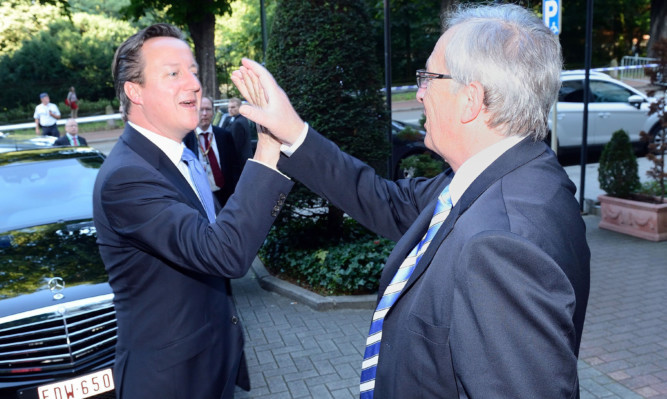
The Transatlantic Trade and Investment Partnership must be stopped in its tracks.
Who do you think makes the really big decisions in Britain? Decisions like privatising healthcare or maybe re-nationalising the Post Office.
You’d imagine it was the Commons. Or Downing Street. Or Holyrood.
Wrong.
It could soon be a bunch of corporate lawyers. That’s what the Transatlantic Trade and Investment Partnership is all about a battle for control of our country.
Now, I’ll grant you, that’s not how it looks. TTIP is a trade agreement that seeks to “remove the regulatory differences between the US and European nations”. Sounds innocent enough.
But it could create a giant single market between Europe and the USA which allows big business to sue the living daylights out of our governments if they pass laws, allocate cash, award contracts or pursue policies which might disadvantage transnational companies.
You don’t believe such sweeping, undemocratic change is possible? That’s what they thought in Oz. Now the tobacco giant Philip Morris is suing the Australian government for messing with future profits by daring to discourage youngsters from smoking. Absurd, but true.
In Germany, energy firm Vattenfall is suing Angela Merkel for taking the democratic decision to shut down nuclear power plants in the wake of Japan’s Fukoshima disaster. Another firm is suing El Salvador’s government for refusing permission to start a new goldmine because it might poison drinking water. They want $315m for the loss of future profits.
You don’t believe such lawsuits will succeed? They already have.
Oil giant Occidental got more than $2bn in compensation from Ecuador, when its government terminated a drilling concession because the company had broken Ecuadorean law.
It’s crazy. And it could be coming here.
The row surfaced during the referendum debate over privatised NHS contracts in England being forced to accept American bidders. The culprit is the Investor-State Dispute Settlement mechanism.
Again, it sounds innocent enough. But when ISDS is embedded in a trade agreement, it lets corporations sue governments whose actions impinge on their earning power at an arbitration panel (not a normal court) composed of corporate lawyers.
The hearings are held in secret, the public is not represented and many of the judges work for companies like those bringing the cases. And these kangaroo courts can overthrow the sovereignty of parliaments.
It sounds like something from a dark futuristic thriller and it gets worse.
The guy pushing for TTIP and ISDS to be accepted across Europe is our very own David Cameron. You might remember he opposed the election of Jean Claude Juncker as EU Commission President claiming the former Luxembourg Prime Minister threatened British sovereignty.
Well, it turns out that was a row over TTIP. Juncker is opposed. Good old Jean Claude. But with 14 member states leaning on him to sign, he needs public support to resist.
Already, two million European citizens have signed online petitions calling for TTIP and ISDS to be scrapped and the whole debate to be made public.
Incredible, isn’t it? David Cameron is so worried about European interference he’s ready to flounce out of the EU. But he’s secretly telling EU bosses to let “multinational companies get rich at the expense of ordinary people”.
That’s the opinion of The Economist and maybe the British people in next May’s General Election.
Dave, you have been warned.

Enjoy the convenience of having The Sunday Post delivered as a digital ePaper straight to your smartphone, tablet or computer.
Subscribe for only £5.49 a month and enjoy all the benefits of the printed paper as a digital replica.
Subscribe